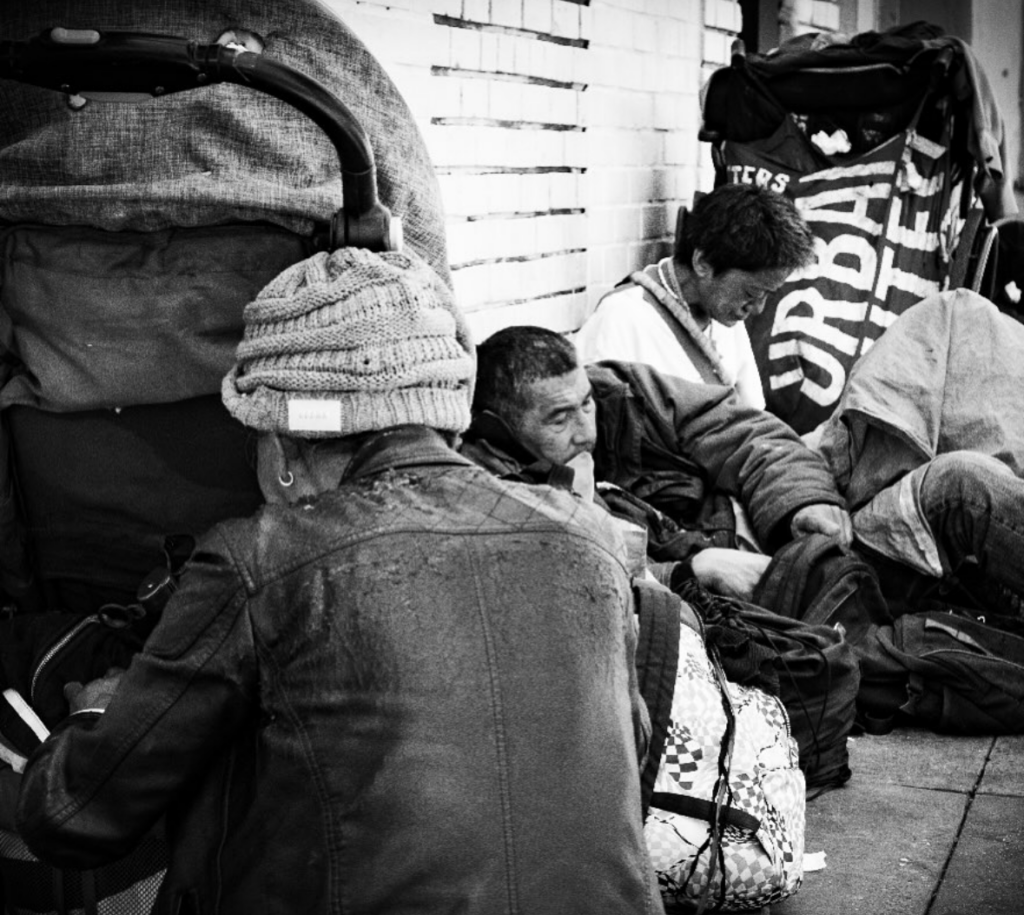
I can’t stay silent about the encampment sweeps currently taking place across California. Every step we take to criminalize poverty and homelessness takes us farther away from the empathy and compassion we actually need to resolve the homelessness crisis. Homelessness is not a crime. So-called “clean-ups,” aren’t solutions.
The solution is finding people housing: or better yet, preventing them from losing their housing in the first place! If you agree, please join GLIDE’s Center for Social Justice in sending this letter to lawmakers.
At GLIDE we care about lasting solutions; over the past three years, GLIDE’s rental assistance program has helped more than 1100 people and prevented more than 500 evictions. That’s why, when ABC 7 news interviewed me, I urged lawmakers to prevent homelessness with housing subsidies and rental assistance.
And when KQED interviewed me, I explained how we can help unhoused people who’ve got health and recovery challenges. When they turn their lives around, they can get off the street permanently.
I can’t tell you how often I see families and children waiting to eat meals at GLIDE. In California, over 4% of children in schools are homeless. Do you think it’s going to help those children if their parents are criminalized for sleeping on the streets? If their possessions are swept up into plastic bags that might or might not be retrievable? We know that people have lost ID cards, medications, and job applications in the chaos of encampment sweeps, which is the last thing any homeless person needs.
I expressed to KTVU that we see the pain that people are going through when their encampments are moved. They have to lose their connections to organizations and resources.
Public health experts estimate that sweeps could lead to a 25% rise in deaths among unhoused people over the course of the next ten years. Even when the sweeps don’t result directly in arrests, they are shown to increase racial, gender, and health inequities.
Countrywide surveys show that encampment sweeps result in police citations at least as often as they result in referrals to services, something for policy makers to keep in mind, given that compassion for the homeless has been rising over time.
City shelters only have capacity for less than half our unhoused residents. Besides lack of space, there are other valid reasons why unhoused people sometimes find shelters undesirable. It could be lack of storage space for possessions, safety concerns, or a no-pets policy: all of those reasons make sense when you use a lens of compassion, rather than one of judgment.
Why are we acting like moving tents from one neighborhood to another will solve homelessness? At GLIDE, we know what helps people break the poverty trap: that’s trusting relationships built over time with service providers, and options to be permanently housed that won’t separate them from families, partners, and pets.
Every time we sweep up an encampment, homeless people become more suspicious of authorities, making it harder to connect them to services.
Our newly launched Community Ambassadors program is targeted at the root causes of poverty, not simply sweeping poor people out of sight. The ambassadors will patrol a ten-block radius around GLIDE in the Tenderloin, providing low-threshold case management, connecting people to services and support groups, and cleaning up graffiti and trash.
We work closely with the Mayor’s Office on holistic solutions to homelessness, because we’re determined to solve the underlying problems. We’re about creating lasting change in the Tenderloin and San Francisco. We’re about compassion.
Unhoused people need support and resources to break the poverty trap. GLIDE’s Center for Social Justice has helped secure more than $20 million in state funding for housing subsidies, shelters, and mental health support through coalition work.
Let’s focus our City resources on increased access to shelter, rental subsidies, affordable housing, behavioral health services, and workforce development programs. Arresting the homeless is a step backwards, into the past.
In 1966, GLIDE supported LGBT youth in resisting encampment sweeps. We continue to stand with the homeless through the decades, and we refuse to turn back the clock nearly 60 years on homeless support.

Dr. Gina Fromer
GLIDE President & CEO
